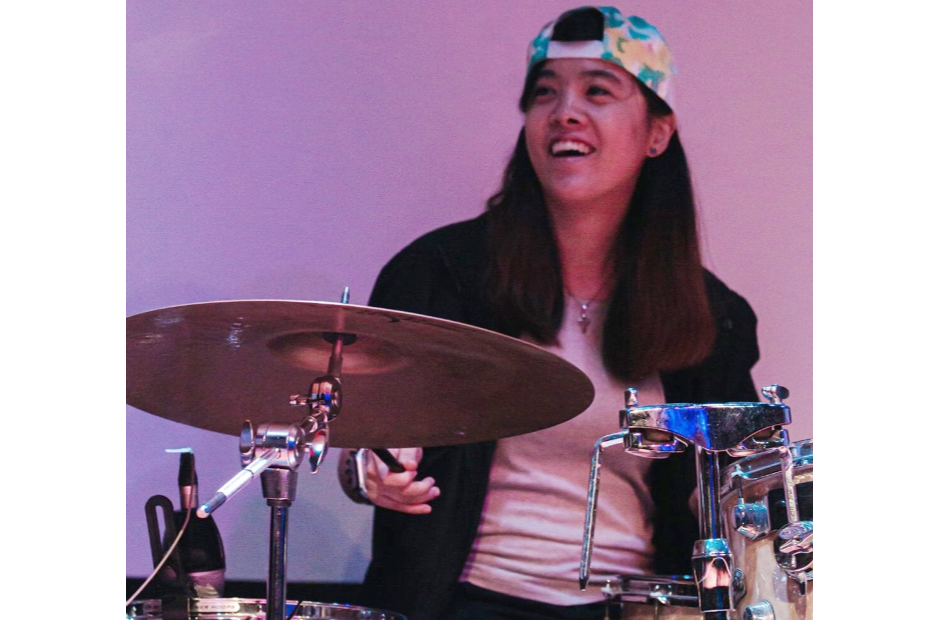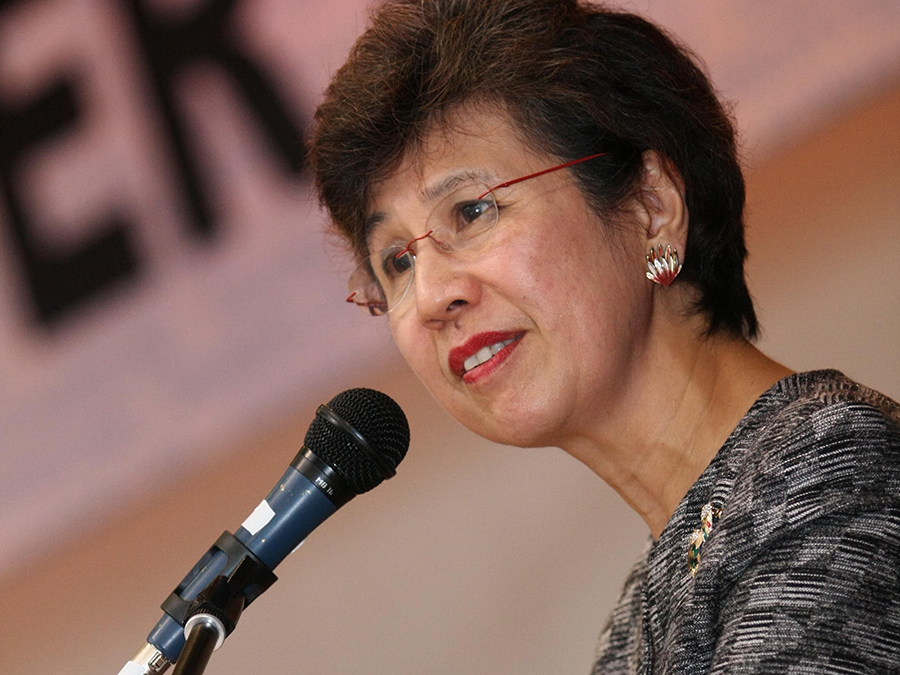Some goals may take a little longer to reach, but if the passion to attain them burns bright, anything’s possible. Just ask Joy Aesther Chan, a second-year student at Singapore Polytechnic (SP)’s Diploma in Music and Audio Technology (DMAT)*, whose abiding love for music led her to re-enter polytechnic at the age of 25.
Joy had previously enrolled in Republic Polytechnic (RP)’s Diploma in New Media but dropped out after two years.
“I could not connect with the course at all, and did badly on modules such as drawing.”
But for Joy, this was just one of the detours on the road to pursue her true calling – music.
Discovering her passion
Joy has been creating music all her life – but informally.
“As a child, I would watch my peers play the piano at church. When the music room was empty, I would walk up to the upright piano and try playing, for instance, a Sunday school song that we had sung. After a few attempts, I realised I could play by ear. That was when I became very interested in music,” says Joy.
Piano lessons were out of reach, so over the years, she wrote lyrics. “This was my way of coping when I felt down, and this fuelled my passion for music. I wanted to develop my skills so I could write music that could have a positive impact on others,” says Joy.
After dropping out of her New Media course, Joy got a job and one of the first things she did was buy a guitar. “I watched instructional videos on YouTube,” says Joy. “I learnt to sing and play Christian worship, as well as Mandopop songs.” She also picked up other instruments, such as piano, drums and the Cajon in church. “I would mimic how my friends played and they also taught me the basics.”
Joy was working as a recruiter in an agency during this period, and this was actually going to be the trigger that turned her life around. One of her responsibilities as a recruiter was giving career advice to clients. She would look at their credentials and areas of interest and make recommendations.
While doing so, she obviously thought about her own life goals and aspirations and how she wanted to achieve a meaningful career in music. But she had no formal training, so she hesitated.
Finding an opportunity through EAE
At this time, Joy chanced upon the Early Admissions Exercise (EAE) for Working Adults online. She was struck by the idea of applying for the DMAT but continued to hesitate. After all, she was already 25 and had a job.
The moment of decision came while she was on holiday in Italy.
“It was one week before the EAE deadline,” says Joy. I was in an empty cathedral. I sat by the piano and started singing and playing chords. When I looked at my watch, I realised that four hours had passed. At that moment I knew that music was the career for me.”
Joy quickly applied for DMAT through EAE and secured an interview.
“I was told to bring any musical certifications or portfolio I had. I scrambled to print out some original songs I had written. It was quite nerve-racking because I did not even know what to expect in the interview. I was thinking that I wouldn’t get into the course since I was super amateur and ill-trained compared with what I thought other interviewees had to offer,” says Joy.
But, her original songs and improvisation skills through singing impressed the panel.
“The interview turned out to be very enjoyable. I was awed by one of the teachers who did accompaniment while I improvised with singing. The teachers on the panel looked very serious and intimidating. I kept thinking that I had no credentials or the skill sets they were looking for. But they put me at my ease. They just wanted to see what I could do.”
Scaling up
Once at poly, Joy faced a steep learning curve.
“But I took it in good stride and worked very hard. When I first started learning how to play scales on the keyboard, I would practise every day for hours. Exams were every two weeks. I listened to solfege scales on repeat and set them as my alarm clock,” says Joy, adding that her classmates were very supportive and helped her to improve her skills.
Joy says DMAT has already had a significant impact on her songwriting, aural and music arrangement skills. The lecturers, who are music industry veterans, also offer valuable advice on pursuing a career in the music business, she says.
“The programme also pushes me to develop leadership skills as I am one who usually prefers someone else to take the lead,” she says. “I became more confident when performing live,” she adds.
Today, Joy and her classmates perform regularly at events. She hopes to work as a music teacher upon graduation, and “bring joy to the world” through her work.




.jpg)

